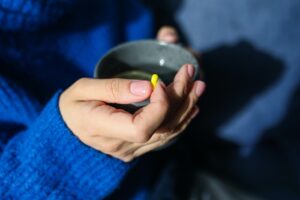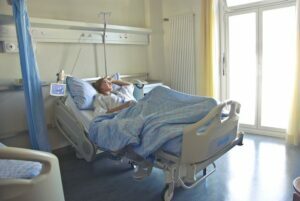Alcohol Rehab Lincolnshire
Click the links below for help with drug and alcohol addiction in Lincolnshire
- Signs a person may need rehab in Lincolnshire
- The first steps before rehab in Lincolnshire
- The costs of rehab in Lincolnshire
- Detoxing at rehab in Lincolnshire
- Therapy at rehab in Lincolnshire
- Aftercare after rehab in Lincolnshire
- Rehab referrals in Lincolnshire
Many people in Lincolnshire are dealing with drug or alcohol misuse.
| Type of household with drug and alcohol issues | Lincolnshire | England |
|---|---|---|
| Parent living with children | 21% | 18% |
| Other child contact – living with children | 2% | 6% |
| Parent not living with children | 30% | 30% |
| Not a parent and not in contact with children | 46% | 46% |
The OK Rehab helpline is able to connect you with outstanding treatment centres in or around Lincolnshire.
We only liaise with centres that boast low relapse rates, a wide range of therapies, excellent leisure activities and a comprehensive aftercare programme.
If substances have started to take over your life, affecting your work and relationships, do not hesitate to reach out to us today to break the cycle.
To begin your recovery journey at drug and alcohol rehab in Lincolnshire today, call us today on 0800 326 5559
The Use Of Interventions Before Drug & Alcohol Rehab In Lincolnshire

Entering rehab in Lincolnshire, as well as making the choices leading up to this decision, can be a difficult process.
With the amount of information available in the modern world concerning addiction, knowing where to start can be even harder.
Luckily, there are some methods that can be employed before an individual begins to look into these options, making the process less stressful and generally easier for those seeking help.
Interventions make up a large number of rehabilitative techniques that can be used pre-rehab. Often with the presence of a professional counsellor, individuals will discuss their addiction with those around them who may have been affected.
This is also an opportunity for friends and family to raise any concerns or share how the addiction has affected them.
With traditional interventions, this can seem confrontational towards the individual, sometimes demotivating them entirely from seeking further help.
These intervention methods have a success rate of around 30% in terms of encouraging the seeking of further rehabilitative methods.
Can CRAFT Interventions Convince People to Go to Drug & Alcohol Rehab?
A more modern approach for drug and alcohol addictions, known as the CRAFT (Community Reinforcement Ans Family Training) method has a success rate of around 70%. This is due to the invitational nature of this style of intervention.
Through CRAFT, individuals learn how to use positive reinforcement to slowly guide their loved ones towards treatment without the need for a confrontation.
Friends and family also have the chance to recommend any rehabilitative treatments that they feel may be most suitable.
To begin your recovery journey at drug and alcohol rehab in Lincolnshire today, call us today on 0800 326 5559
How Do I Know If I Am Addicted to Drugs or Alcohol?

In some instances, it may be difficult for an individual, or someone close to an individual, to discern whether they are struggling with drug and alcohol addiction or not.
Often, individuals become very secretive with their behaviour when struggling with addiction, either due to the nature of their addiction or in an attempt to hide their behaviours from those around them.
In either case, assessing an individual behaving in this way can be difficult. However, there are some techniques that can be used in situations such as this.
For example, many professionals use the CAGE questionnaire to ascertain whether an individual is exhibiting signs of addiction.
CAGE stands for the four main areas assessed by this questionnaire, often administered in a one-to-one situation.
These are as follows:
- Cutting down
- Annoyance by criticism
- Guilty Feeling
- Eye-openers
These are the four main areas in which an individual will show differences due to addiction and a medical professional will then be able to suggest the next steps or suggest suitable drug and alcohol rehab in Lincolnshire.
How Can Recovery Change People?

Getting help for drug or alcohol dependency at rehab in Lincolnshire will be life-changing. Just as addiction impacts every area of your life, so does recovery.
1. Finding Employment after Drug & Alcohol Rehab
One reason people are deterred from rehab is the fear that it will impact their careers.
However, it should be noted that rehab is short-term – it only lasts for a few weeks on average.
On the other hand, a life of addiction can have major negative impact on employment. Many people who use substances frequently miss work, which results in them losing their job.
They may then turn to crime to fund their addiction, which is a huge barrier to future employment prospects.
Choosing sobriety over an addiction can do wonders for your employment. You will feel healthier physically and mentally, which could help you be more productive than ever before.
2. Building Relationships after Rehab
If you are dependent on drugs or alcohol for your happiness, it is likely that you will put that before your relationships. Evidently, your loved ones are bound to resent this, which could result in failed relationships.
When you choose to recover, you show your family and friends that you care more about them than substances. This can restore relationships and even bring you closer than ever before.
3. Working on Physical Health after Rehab
The aforementioned symptoms of addiction demonstrate that drugs and alcohol cause your health to deteriorate tremendously. Your body will be slower and more susceptible to disease.
Conversely, after detoxing at rehab in Lincolnshire and staying away from substances, your body will be renewed, and you will have plenty of energy. The increased risks of cardiac arrest, strokes, and different types of cancer will no longer be a concern.
4. Healing Your Mental Health after Rehab
If you suffer from a mental health condition and you turn to substances, it is very likely that this condition will worsen. We see this happen with anxiety, depression, and schizophrenia most commonly.
It is also common for mental health conditions to arise as a result of substance abuse.
For some people, when they are firmly in recovery, they find that their mental health condition goes away (when it is the direct result of substance abuse).
Others notice reduced symptoms relating to their conditions, as sober individuals are less likely to be plagued by anxiety and low mood.
How Else Can Drug & Alcohol Rehab in Lincolnshire Transform My Life?
To begin your recovery journey at drug and alcohol rehab in Lincolnshire today, call us today on 0800 326 5559
How Much Does Residential Rehab Cost In Lincolnshire?

Addiction is a disease which affects every individual differently. No two experiences are the same, and therefore the care required for each case will never be the same.
Because of this, predicting an accurate cost may not always be possible. There are many variables which may affect the cost, such as duration of treatment, treatment undertaken, and the specific centre chosen.
However, one of the biggest differences in cost can be determined through an entirely different factor – occupancy of accommodation.
In general, single-occupancy rooms at rehab in Lincolnshire are are more expensive as the individual has their own private living space, which requires individual upkeep and supervision.
If an individual opts for a multi-occupancy room, they are likely to incur far fewer costs as the cost of upkeep is divided between all of the occupants.
Averages for different durations of care are outlined below:
- ten-day detox (single-occupancy): ~£4,500
- ten-day detox (multi-occupancy): ~£3,000
- 28-day stay (single-occupancy): ~£10,000
- 28-day stay (multi-occupancy): ~£6,000
Please bear in mind that the above costs are averages at the time of writing and could be affected by other factors such as insurance, location, and services offered.
Every drug and alcohol rehab in Lincolnshire is different, so researching the different factors influencing cost is a great way to start considering future rehabilitation.
To begin your recovery journey at drug and alcohol rehab in Lincolnshire today, call us today on 0800 326 5559
Is Rehab In Lincolnshire Covered By Health Insurance?

In general, each insurance plan for each individual will vary depending on the type of insurance plan as well as the provider.
Many companies now offer health insurance plans as part of their employment, meaning that individuals can be covered for rehab in Lincolnshire in some cases.
If offered through work, individuals should always ensure the types of care that are covered by their specific plan, either by speaking to their insurance representative at work or by taking a look at related documentation.
Some individuals have their own private healthcare plans, either existing or confirmed upon the diagnosis of an addiction.
In these cases, individuals can contact the insurance provider directly to ask if their healthcare plan covers rehabilitation, or take a look at the documentation provided by their service provider.
In most cases, insurance plans can be updated or changed to allow for rehabilitative care, though this may incur an additional cost
Always discuss this in plenty of time before making a final decision about rehabilitation – it is better to have security in coverage rather than rushing to organise insurance whilst going through the process of rehabilitation.
To begin your recovery journey at drug and alcohol rehab in Lincolnshire today, call us today on 0800 326 5559
Is Drug And Alcohol Rehab in Lincolnshire Available Through The NHS?

There are numerous rehabilitative services that individuals can access through the NHS. This is often the first port of call that individuals contact when developing a rehabilitation plan.
Free and NHS-run addiction treatment services in Lincoln include:
1. CAMHS Lincoln
Address: Sycamore Centre, Beacon Lane, Grantham, NG31 9DF
Telephone: 0303 123 4000
2. We Are With You
Address: 26-30 Newland, Lincoln, LN1 1XG
Telephone: 0800 304 7021
Website: https://www.wearewithyou.org.uk/
3. Connect to Support – Lincolnshire
Telephone: 0300 303 8789
Website: https://lincolnshire.connecttosupport.org/
However, rehabilitation accessed through the NHS is often limited in terms of individual specific needs.
For example, getting access to residential rehabilitation through the NHS is rare, as this is an expensive option – something that causes problems in a public-funded service.
Because of this, individuals will often need to seek external public funding, such as that through local council services in Lincolnshire.
However, this can be an incredibly long process, often taking months to secure suitable funding and finally begin care.
When it comes to addiction, time works against the individual, with their addiction often worsening the longer it is left untreated. Therefore, getting help as soon as possible is of the utmost importance.
To begin your recovery journey at drug and alcohol rehab in Lincolnshire today, call us today on 0800 326 5559
How Long Does Residential Rehab in Lincolnshire Last?

As mentioned in the paragraphs above, addiction affects every individual uniquely, and this means that no two addiction treatment programmes at rehab in Lincolnshire will be the same.
This includes the duration of rehabilitation, as individuals will progress through rehab at different stages.
For example, the minimum amount of time spent in rehab is usually for treatments such as detox.
This is the initial stage of rehab and involves the removal of harmful toxins from the body that have built up as a result of addiction.
The shortest recommended time spent progressing through detoxification is 7 days, though this is only suitable for individuals who may have a shorter history of addiction and/or a reduced reaction to withdrawal.
OK Rehab recommends a stay of 28 days. This includes the initial detoxification process, varying between 7 to 14 days depending on the individual’s history, as well as a further 3 weeks of additional treatments and therapies.
This allows for the individual to enjoy the full experience of rehabilitation, as well as progress through various tailored and specific treatment programmes to aid in their long-term recovery.
To begin your recovery journey at drug and alcohol rehab in Lincolnshire today, call us today on 0800 326 5559
Comparing Council-Funded Treatments To Private Residential Care

Briefly touched on previously, it can be seen that there are big differences in the types of care and care providers available in the UK.
Drug and alcohol rehab in Lincolnshire varies between areas, though in general rehabilitative care can be broken down into two main sources: council-funded services such as the NHS, and private care such as that experienced in a residential rehab centre.
The main differences, benefits and drawbacks are listed below:
- Council-funded treatments – This is often the first place people seek rehab. These services are generally local, convenient, and free of charge. However, this also results in lengthy waiting lists to access appropriate care, and the individual may not have constant access to the same treatments or treatment providers, making steady recovery more challenging.
- Private residential care – Often accessed through self-referral source providers such as OK Rehab, this type of care allows individuals to access residential care within the same day if necessary. These centres have a high level of care and are proven to be the most effective rehabilitative treatment. However, this also comes with a significant cost. Although this will be covered by most healthcare insurance providers, it is important to consider the expert staff, care and treatments experienced with this option.
To begin your recovery journey at drug and alcohol rehab in Lincolnshire today, call us today on 0800 326 5559
The Difference Between Inpatient And Outpatient Addiction Treatment

As a further breakdown of rehabilitative treatments available, it may be useful to consider the different treatments in their most common categorisation: inpatient and outpatient care.
In general, these terms relate to the way in which rehabilitative care is administered to the individual.
For example, inpatient care is that which takes place in a centre away from the individual’s home.
During this type of care, individuals will stay away from home in a dedicated centre, partaking in regular treatments and therapies that are specialised and tailored specifically for them.
Inpatient care is usually the most recommended option for a full and successful recovery as it is proven to be the most effective.
It is more suitable for those who have a long history of drug and alcohol usage, or those who prefer a more supervised approach to care.
Alternatively, individuals may decide that outpatient care is more suitable for their needs. This refers to the treatment undertaken whilst remaining at home or in the individual’s local area of Lincolnshire.
This is more suitable for those who may a shorter history of drug and alcohol usage, or those who prefer a more local or independent approach to rehab.
To begin your recovery journey at drug and alcohol rehab in Lincolnshire today, call us today on 0800 326 5559
Why We Recommend Residential Rehab in Lincolnshire

Residential rehab in Lincolnshire has the benefit of absolute tranquillity. You will live in the gorgeous English countryside, benefitting from lovely grounds and outdoor activities such as swimming, fishing, and horse riding.
As for specific care, you are never alone. There will be staff on duty all day and night to help with your physical and mental needs. This means there is no room for relapse.
Being in a community of like-minded people means that you will feel inspired each day to wake up and choose recovery.
In group therapy sessions, you will hear amazing success stories that help you accept that recovery can be a reality for you.
Equally, you will have the freedom to share your life experiences with others, which can help you feel heard and accepted. This open environment contributes to reducing the stigma surrounding addiction.
When you leave rehab in Lincolnshire, you will hopefully feel less ashamed about your struggles as you will be aware that addiction can affect anyone.
Crucially, you will also be aware that anyone can recover from addiction issues.
The services provided at rehab vary depending on the centre you select. However, these are likely to include:
- Leisure facilities
- Motivational talks
- Educational workshops
- Healthy meals every day
If you desire any service in particular, it is possible to seek out a rehab with that service, as the options are endless in Lincolnshire.
When you complete your treatment at rehab, the support does not end there. For 12 months, you will have weekly access to the rehab centre in the form of individual and group therapy.
You will also be able to contact the rehab’s helpline whenever you need to, as well as receive regular calls from the staff to check up on your progress.
To begin your recovery journey at drug and alcohol rehab in Lincolnshire today, call us today on 0800 326 5559
Alcohol Detoxification And Rehabilitation In Lincolnshire

Rehabilitation for alcohol is one of the most common addictions that OK Rehab has experience treating.
During alcohol withdrawal, there are many associated risks and dangers. For this reason, it is often recommended that the individual undergoes this process in a dedicated centre or detox clinic.
Commonly experienced withdrawal symptoms include increased sweating, alcoholic seizures, insomnia and body tremors.
In more severe cases, such as a long history of alcohol abuse, individuals may be suitable for pharmacological intervention treatments such as the use of the drug Librium.
This reduces the potentially harmful physical withdrawal symptoms that an individual could experience during the detoxification process.
This is only suitable in some instances but is also the basis of home-based detoxes, which those who have a shorter history of alcohol abuse may be suitable for.
After detox, it is important for the individual to consider and partake in future addiction treatment programmes such as therapies and associated physical recovery treatments.
To begin your recovery journey at drug and alcohol rehab in Lincolnshire today, call us today on 0800 326 5559
Rehabilitation For Cocaine Addiction In Lincolnshire

As well as alcohol, cocaine remains one of the most addictive substances available in the UK and accounts for many addictions across the area of Lincolnshire.
Known as a powerful stimulant, cocaine provides the user with changes in perception, mood and behaviour.
Because of this, individuals may begin to behave very differently with long-term usage – this is a key sign that friends and family of the individual often pick up on long before any formal diagnosis.
With long-term usage, individuals also risk serious impacts on their mental health, such as the development of co-occurring disorders such as anxiety, paranoia, depression and increased risk of panic attacks.
However, cocaine (unlike alcohol) is not physically addictive. This means that the risks experienced during withdrawal are not life-threatening.
Because of this, individuals are able to focus more on the future of their rehabilitative journey, often partaking in mental health-based treatments such as therapy and psychiatric-based approaches to care.
Although withdrawal may not be as risky as other substances, individuals should be reminded of the importance of completing every step of recovery.
To begin your recovery journey at drug and alcohol rehab in Lincolnshire today, call us today on 0800 326 5559
Rehabilitation For Heroin Addiction In Lincolnshire

Another extremely addictive substance common in the UK is heroin. This is perhaps the most stereotypical substance that individuals develop an addiction to, as it is often depicted on TV or in films.
However, heroin addictions are often far from what they are shown on screen.
As a class A drug, heroin gives the individual a strong, short-term high that makes it extremely addictive. With long-term use, the effects can become incredibly dangerous.
Heroin is a physically addictive drug, meaning that simply stopping usage can often be life-threatening to the individual. Though most of the long-term effects are psychological, the initial detox from heroin can carry some serious risks.
Because of this, it is important to approach heroin withdrawal in a controlled and supervised manner. Often, individuals undergo a process known as tapering, in which they progress from heroin to a heroin-like substitute such as methadone.
This is a far safer method in which someone can withdraw from heroin as it reduces the harmful physical effects that can leave an induvial with lifelong issues.
After detoxification at rehab in Lincolnshire, individuals are encouraged to undergo OK Rehab’s recommended stay of 28 days to focus on other addiction treatment programmes, such as therapy based on treating the mental health effects of long-term heroin usage.
To begin your recovery journey at drug and alcohol rehab in Lincolnshire today, call us today on 0800 326 5559
Rehabilitation For Cannabis Addiction In Lincolnshire

Cannabis is the most commonly used illegal drug in the UK. With 7.8% of 16–59-year-olds in the UK reporting usage in 2020, it remains one of the most common recreational drugs across the country.
With a variety of effects also varying in duration, cannabis can affect every individual differently.
Common effects include increased appetite, paranoia, and enhanced creativity, though these are just a few of the effects that barely scratch the surface of what can happen.
Like cocaine, cannabis is not physically addictive, and there is no official process known as a ‘cannabis detox.’
Although it is important to go through the stage of detoxification in terms of stopping usage slowly over time (depending on usage and history), the following treatments and therapies are often far more valued in reference to long-term recovery at rehab in Lincolnshire.
To begin your recovery journey at drug and alcohol rehab in Lincolnshire today, call us today on 0800 326 5559
Common Types Of Therapy Experienced In Rehabilitation

Though not every individual will have the same experience of rehabilitation, there are some common therapies that are likely to be experienced and will be useful to understand in a basic sense.
These are listed below:
- Cognitive Behavioural Therapy (CBT)
- Dialectical Behavioural Therapy (DBT)
- Motivational Interviewing (MI)
- Individual Counselling
- Group Talking Therapy
- Motivational Enhancement Therapy
- Family Therapy
- Holistic Therapy
This is a list of the most common treatments available through drug and alcohol rehab in Lincolnshire. Please bear in mind that these will vary from location to location and may not always be available or practised by every rehabilitation service provider.
To begin your recovery journey at drug and alcohol rehab in Lincolnshire today, call us today on 0800 326 5559
Dual Diagnosis At Rehab In Lincolnshire

Dual diagnosis is the approach to rehab that focuses on both the physical and mental health effects of addiction at rehab in Lincolnshire.
Using the idea that addiction is a symptom of co-occurring or underlying mental health issues, the best rehabilitation service providers will use this approach with all of the addiction treatment programmes that they run.
Common co-occurring mental health issues include anxiety, depression, schizophrenia and bipolar disorder, though these are only a few of the disorders that individuals may struggle with over the course of their recovery.
All of OK Rehab’s suggestions and referrals are made through services which follow the dual diagnosis approach to rehab.
Without this approach, an individual is unlikely to make an effective or efficient recovery, and they may risk multiple relapses throughout their journey.
Many organisations across the UK offer free mental health support, whether you are also suffering from drug or alcohol addiction or not.
Some of these include Mind UK, Young Minds, Rethink Mental Illness, Samaritans and Papyrus.
To begin your recovery journey at drug and alcohol rehab in Lincolnshire today, call us today on 0800 326 5559
How Rehabs Help With Relapse Prevention Planning in Lincolnshire

An essential part of rehabilitation is relapse prevention planning. This is part of rehabilitation that focuses on life after rehab in Lincolnshire, and the continued independent recovery of the individual.
When creating the plan, individuals are reminded to keep these key features in mind:
- Recovery is a gradual process.
- There are no shortcuts to recovery.
- The main concepts are cognitive behavioural therapy and mind-body relaxation.
- Be honest, patient, and be ready to make changes where necessary.
Additionally, individuals are encouraged to create a physical copy that they can refer to in situations where it may be needed.
This may be a case of creating a poster-style plan to have on display somewhere useful, or having a note or reminder on the individual’s phone to ensure easy access.
Relapse is not always guaranteed, as most rehab programmes focus on reducing this risk.
However, having a plan in the instance that it is needed is always recommended for the safety of the individual and those around them as well as for personal peace of mind.
To begin your recovery journey at drug and alcohol rehab in Lincolnshire today, call us today on 0800 326 5559
Aftercare And Alternative Support Services In Lincolnshire

Most rehab source providers in Lincolnshire, such as those accessed through residential centres or through local rehabs, offer a form of aftercare once the individual has left their services.
This usually includes contact with an addiction supervisor or being enrolled on an addiction support programme in order to bolster any future rehabilitative endeavours that an individual may pursue.
Residential rehab centres, for example, often provide their own aftercare service, offering expert advice and contact when and where needed, as well as inviting the individual back to the centre for any needs they may have.
This type of aftercare is generally available for around a year after leaving their care, but this varies from centre to centre and should be discussed with each individual establishment.
For those for whom residential rehab is not suitable, there are some alternative types of treatment that an individual may seek.
These are outlined below:
- Addiction support network groups, e.g., Alcoholics Anonymous Lincolnshire, Narcotics Anonymous, Cocaine Anonymous
- SMART (Self-Management And Recovery Training) – a combination of CBT and MI
- Home detoxes (where suitable)
- Family drug support
- Alternative local council services accessed through Lincolnshire council
To begin your recovery journey at drug and alcohol rehab in Lincolnshire today, call us today on 0800 326 5559
Contact Us Today for Drug & Alcohol Support

There is no better way to understand how we can help you than to contact one of our wonderful helpline advisors. They will lend an ear to you, advise you, and help you to arrange treatment in Lincolnshire.
You can let go of all admin responsibilities the moment you reach out to OK Rehab.
The biggest benefit of our helpline is that all advisors have suffered from addiction issues themselves, meaning they understand just how difficult it is to ask for help.
Consequently, they will provide a non-judgmental environment in which you can feel confident discussing your troubles.
No matter how severe your addiction and how long you’ve been suffering, OK Rehab wants to help.
Every rehab in England and Wales that we work with is vetted by the Care Quality Commission.
Get help for addiction anywhere in Lincolnshire, including in Lincoln Grimsby, Scunthorpe, Grantham, Boston, Cleethorpes, Spalding, Skegness, Gainsborough, Stamford, Sleaford, Louth, North Hykeham, Bourne, Market Deeping, Mablethorpe, Barton-upon-Umber, Immingham, Holbeach, Horncastle, Brigg, Washingborough, Waltham and many others.
To begin your recovery journey at drug and alcohol rehab in Lincolnshire today, call us today on 0800 326 5559





